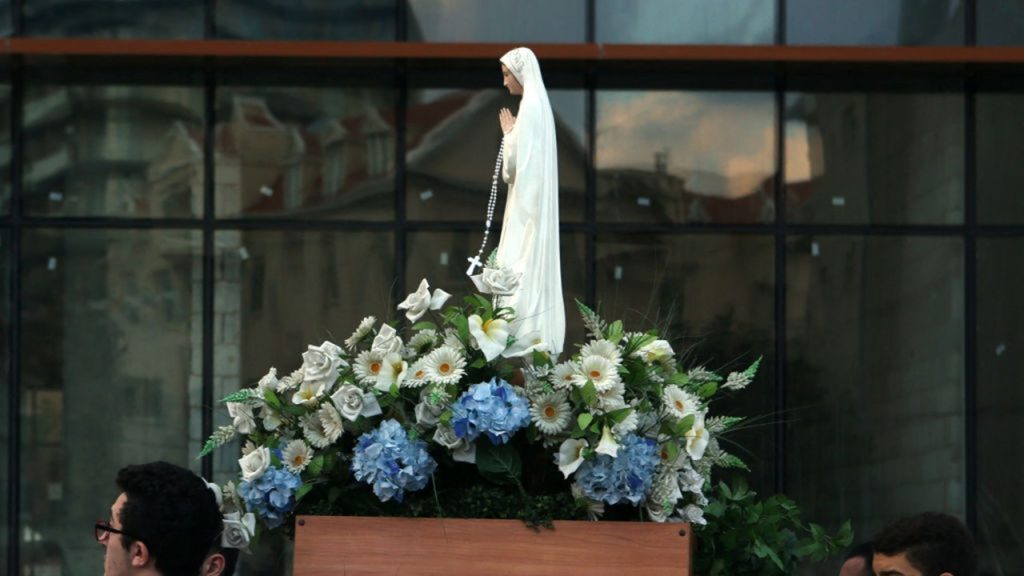Ibrahim Mrad, a prominent Lebanese Christian leader, is advocating for robust international intervention to dismantle Hezbollah, the Iran-backed Shiite militant group. Mrad, who heads the Universal Syriac Union Party and serves as secretary general of the Lebanese Christian Front, believes that the current ceasefire between Israel and Hezbollah is fragile and unlikely to hold. He argues that only a forceful intervention by the U.S., U.K., and Germany, in coordination with the United Nations and the Lebanese army, can effectively neutralize the threat posed by Hezbollah. This call for intervention reflects a growing concern within Lebanon, particularly among Christian communities, about the continued influence and military capabilities of Hezbollah.
Mrad’s plea for international assistance stems from the belief that Hezbollah, despite recent setbacks in clashes with Israel, remains a potent force and poses a significant threat to regional stability. He points to Hezbollah’s continued recruitment efforts and attempts to rearm through domestic production and smuggling routes via Syria as evidence of the group’s resilience. Mrad asserts that previous international resolutions aimed at disarming Hezbollah, specifically U.N. Resolutions 1559 and 1701, have failed due to a lack of effective enforcement. He emphasizes the need for the presence of American, British, and German troops within any international force deployed to Lebanon, underscoring the perceived necessity of Western involvement to ensure the success of the mission.
The Lebanese Christian Front, led by Mrad, maintains that the Lebanese government and army, while opposed to Hezbollah, lack the capacity to dismantle the group or prevent future conflicts with Israel. Mrad estimates that approximately 70% of the Lebanese population opposes Hezbollah, indicating a significant internal resistance to the group’s influence. However, he recognizes the limitations of the Lebanese state in confronting Hezbollah’s entrenched military power. This perceived weakness underscores the need, from Mrad’s perspective, for external intervention to address the Hezbollah issue decisively.
Mrad’s appeal for international intervention comes against the backdrop of recent tensions between Israel and Hezbollah. Following a period of intense clashes, a ceasefire was brokered between the two sides. However, the agreement remains precarious, with both sides exchanging sporadic attacks. Furthermore, U.S. intelligence reports suggest that Hezbollah has not taken any steps to dismantle its military infrastructure in Lebanon, a key provision of the ceasefire agreement. These reports suggest that Hezbollah is likely to rebuild its forces and replenish its weapons stockpiles, further fueling concerns about the long-term viability of the ceasefire.
Israel, meanwhile, has warned that it will hold Lebanon directly responsible for any future attacks by Hezbollah, a stance that Mrad cautions against. He believes that targeting Lebanese civilians would be a strategic error that could alienate the Lebanese population, which he claims is largely opposed to Hezbollah. While acknowledging the threat posed by Hezbollah, Mrad emphasizes the importance of distinguishing between the group and the Lebanese people as a whole. He argues that indiscriminate attacks on Lebanon would likely increase popular support for Hezbollah, undermining efforts to isolate and weaken the group.
Mrad’s call for intervention represents a significant development in the ongoing struggle to address the complex political and security challenges in Lebanon. His advocacy highlights the deep-seated concerns within Lebanon regarding Hezbollah’s influence and the perceived inability of the Lebanese state to effectively counter the group’s power. The international community’s response to this call will be crucial in determining the future trajectory of the situation in Lebanon and the broader region. Whether the U.S. and its allies heed Mrad’s plea for intervention remains to be seen, but his urgent appeal underscores the gravity of the situation and the potential for further escalation if the Hezbollah issue remains unresolved.

